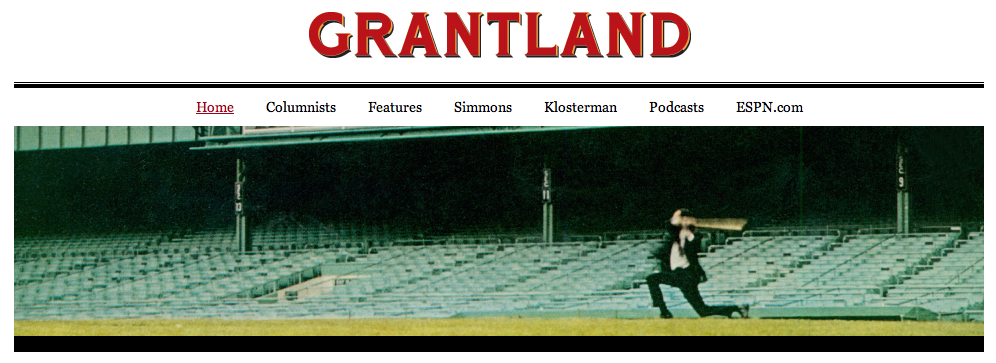The news that those of us who love good writing had been dreading finally came last Friday: Grantland is dead. No one can be particularly surprised at the move given ESPN’s acrimonious split with site founder and editor-in-chief Bill Simmons earlier this year. Indeed, the Atlantic predicted how all this would play out four years ago:
But Simmons will lose this battle — the rebellious teenager still relies too heavily on its parents for support — and ESPN will drive this site into the ground. It’s only a matter of time before he leaves. “I don’t know, I think I have one more big sellout of my career,” Simmons told Mahler. Well, at least ESPN didn’t name the site The SimmonsPost; naming it Grantland will make it easier to extract Simmons from the venture when the time comes.
READ MORE: Don’t miss our roundup of other things to read about Grantland over on Mere O Notes.
After the announcement a number of different people took to Twitter to discuss the story. Nicole Cliff of The Toast perhaps made some of the most important observations:
Login to read more
Sign in or create a free account to access Subscriber-only content.
Topics:
